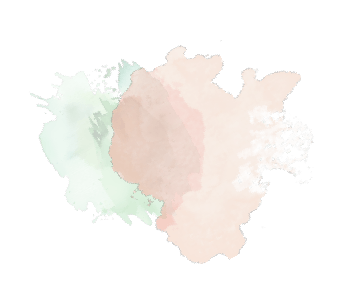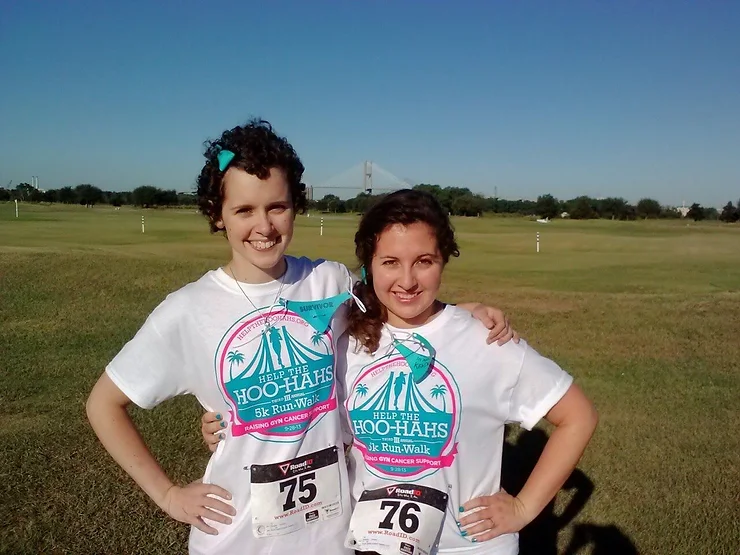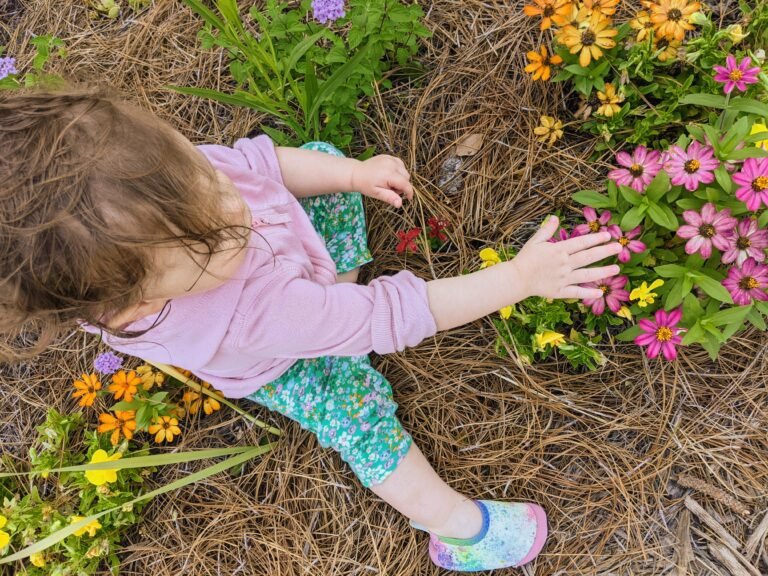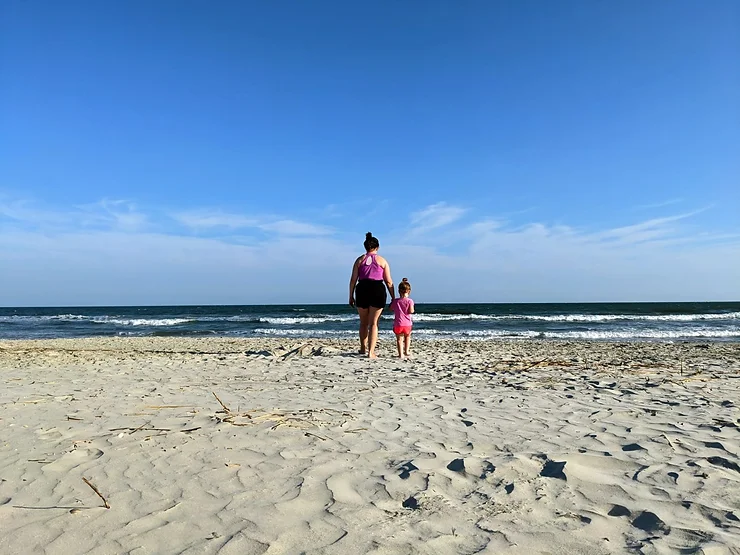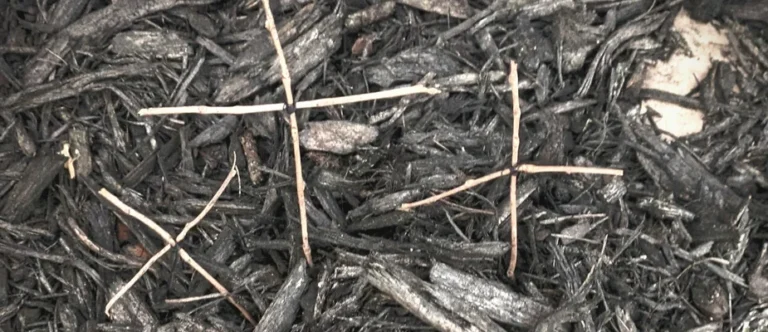Communion, Forgiveness, and My Favorite Failure
This is a story that I have told so many times over the years, but I’ve never actually written it down. It’s not easy to share on such a public platform because this story is bathed in grief. If I am new-to-you, you’ll need to know this: I had a younger sister that died of cancer back in 2015. Her name was Kendra, she was diagnosed with stage three ovarian cancer the summer she graduated high school. She battled it for three years, gave her life to Jesus in the process, and had a huge impact in the lives of so many in our community.
As I think back on that time, my family truly had the best community of support through that season.
If you already knew this about my life and especially if you were there while I was going through it, you are the audience that I am most afraid to share this with. Here’s why: It is not easy to write about how we lost Kendra to cancer. I’ve often thought about writing her story but I am honestly quite afraid that no words that I write will do justice to the life that she lived, and let’s be real, Kendra probably would have despised anything I said. So, today, I’m going to share a snippet of my story: The story of a sister who lost her sister and some very important lessons learned.

I was living in Raleigh, working thirty hours a week in the hospitality industry, and taking full-time seminary classes. I also traveled to visit my sister every week, sometimes twice a week. The drive was long and filled with anxious thoughts. I was worried about losing my sister. More specifically, I was worried about losing my sister before our relationship was reconciled.
Kendra and I did not have the best relationship. We were competitive with each other, antagonistic, and we focused more on our differences than we our similarities – and we were quite different. Kendra was a tough-love person with a hard shell, she rarely let her guard down – especially with me. It’s no secret that I am a sensitive person, openly sensitive unlike Kendra. We knew how to get under each other’s skin, and we were really good at it.
One of the most upsetting experiences for me was Kendra repeatedly telling me, “I don’t like you,” without providing any reason. This was deeply hurtful and left me in turmoil for years as I tried to understand what I had done to warrant her disapproval. I earnestly sought forgiveness for any wrongdoing, yet she never offered an explanation. My fixation on receiving her forgiveness prevented me from recognizing my own need to extend forgiveness to her.
The biggest weight that I carried during this season of my life was unforgiveness.
My relationship with my sister had fractured, and it was in dire need of repair. Despite my best efforts, I came to realize that reconciliation with my sister was an impossible task for me to accomplish alone. It was through this experience that I learned to rely on the support of my local church, which played a pivotal role in the healing process.

I took communion when I probably shouldn’t have.
I was a member of Imago Dei Church (IDC), a church known for its covenant membership and small groups, where I initially struggled to commit and accept support during a challenging season. I often jokingly reflect on my first few months there, admitting that I might have been one of the worst members because they did things much differently than what I had experienced before. It took me months to fully commit as a covenant church member, and even longer to open up and allow them to support me through the process of grieving. Despite my initial hesitation and difficulty, they never wavered in their love and support during a time when I felt I had little to offer and was challenging to love. Another new experience for me was our weekly communion practice, which, to my surprise, never lost its significance. Each Sunday, one of our pastors would take turns reading passages from the Bible about communion, prompting us to reflect on the loving sacrifice of Jesus, who gave His life for our forgiveness. It was during these communion moments that I recognized the need for a significant step of obedience in the form of forgiveness. Guided by the wisdom of Matthew 5:23-24:
“Therefore, if you are offering your gift at the altar and there remember that your brother or sister has something against you, leave your gift there in front of the altar. First go and be reconciled to them; then come and offer your gift.”
When our pastor read those verses, I had a newfound understanding. I confessed to God, “It’s my responsibility, not Kendra’s, to take steps toward forgiveness. I think I need to return home… and, oh shoot! I’m sorry for taking communion today, but I believe I know my for step to make things right with my sister, now. Please guide me.”
I’m immensely thankful that God gives us wisdom without hesitation when we ask (see James 1:5). Later that week, I invited my small group to pray with me about my decision to move back home.
The logistics of moving home had its own set of obstacles. I missed the class add/drop deadline by two weeks, preventing me from withdrawing from my classes for a refund. Thankfully, my professors were accommodating, permitting me to complete the semester online, which ultimately allowed me to balance my studies with family support….Except for Greek, I opted to take an incomplete in that class, intending to tackle it at a later time, a choice that would become important later on.
Here’s a word map of how things played out:
Worship led me to communion. Communion led me to conviction. That conviction drew me to rely on my church family. My church prayed with me and supported my decision. My decision was a huge, scary, step of obedience. That obedience led to forgiveness.
I moved back home.
If you have never moved back home as an adult, know this: it is difficult. During the last six months of my sister’s life, as I was able to be with her at home, it was far from a perfect time. These months proved to be some of the most challenging for my family, Kendra’s close friends, and myself. Kendra and I continued our usual competitive arguments like we always did and those were some tough months! Yet, I sometimes wonder if our arguments brought a sense of normalcy to her amidst her illness. After all, not many people would willingly tolerate her relentless sass. She often vented her frustrations on those closest to her – it took me a while to accept that as a good thing.
Summer 2015 presented intense challenges. In May, Kendra returned home with hospice care following a near-death experience in the ICU. I must mention her incredible strength. Despite her frailty and her body’s struggle to retain essential nutrients, just two days after her hospital discharge, she walked to our mailbox and back. Though not a great distance, considering what she had been through, it was an awe-inspiring accomplishment. Witnessing her determination to walk in the sweltering Southern heat and humidity after nearly losing her life left me deeply proud and inspired. Remarkably, her near-death experience softened both of us. We still had our disagreements, but I found more patience in living with her after that and she slowly opened up to me.
In the process of figuring out how to pursue forgiveness with Kendra, I realized that I was going about it all the wrong ways. I had believed that forgiveness would require a lengthy conversation where we’d catalog our hurts, discuss them, and then – Boom! Our relationship would be reconciled, and we would live happily-ever-after. However, that’s not how it worked for us- and looking back now, I’m grateful it didn’t. What I discovered was even better.
As I sat on the swing with Kendra, I found peace in our relationship. I released my expectations of a flawless sisterly bond and instead embraced where we were. I learned not just to accept her but also to appreciate her and treasure our time together.
What if going to someone and making things right is being present with them?
Simply being there for Kendra was the right course of action all along. Her asking for my presence was as simple as staying up late to watch re-runs of our old favorite shows, Rocket Power, Rugrats, Hey Arnold (Nick at night was our Jam). Spending time with her those last months of her life granted me a perspective that went beyond my own expectations. I started to see Kendra through the lens of how Jesus saw her, and the same way Jesus exemplifies for us.
Jesus didn’t compile lists of people’s wrongdoings. Instead, He acknowledged that we, as humans, often don’t even realize how we distance ourselves from God and cause harm to others. Jesus met people at their point of need, extending forgiveness, healing, and profound love.
Jesus left Heaven to be present with us which led to His ultimate sacrifice of His life, death, and resurrection so our sins could be forgiven, and our relationship reconciled with God. For me, showing up and being present with Kendra is what I needed to forgive her. Which did take personal sacrifice.
Here’s that Favorite Failure I mentioned.
One obstacle hindering my journey toward forgiveness with my sister was the idol of academic achievement. In seminary, professors often emphasized that “It’s better to fail a class and earn an ‘A’ with your family… Family is your first ministry.” Having experienced it firsthand, I can confidently say that prioritizing family as my primary ministry was the best choice. when I moved home, I was fully prepared to juggle full-time classes, work, and caregiving responsibilities. I had purchased all the required books for my full-time classes and had started reading them. However, my plans took an unexpected turn when one of my key financial supporters for seminary informed me that my incomplete Greek course had resulted in an failing grade that affected my GPA. This marked the first time in my life that I had failed any class, ever. I understood it was a temporary setback, and I could retake the class later, but witnessing its impact on my GPA was disheartening. The grant representative regretfully informed me that I would no longer qualify for their grant funding in the upcoming Fall semester. Losing that grant devastated me, and I realized that not taking full-time classes would extend my seminary journey beyond my initial expectations. From an academic perspective and as someone deeply entrenched in perfectionism, I felt like a complete failure.
I am so glad I lost that money. When I express gratitude for that ‘F’ and the loss of the grant money, it’s important to understand that it took me a considerable amount of time to appreciate the value within this failure. Stepping out of my comfort zone and experiencing academic failure allowed me to prioritize people and my family over personal achievement. God graciously guided me towards loving others and cherishing my family more than myself. The most profound way I could love my sister was by offering her my presence and God made a way for me to have that time with her.
If you had been there, you would have witnessed the incredible difficulty our entire family faced. It was undeniably challenging and stressful, but I hold no regrets. In retrospect, I firmly believe in the truth of 2 Corinthians 12:9: “‘My grace is sufficient for you, for power is perfected in weakness.’ Therefore, I will most gladly boast all the more about my weaknesses, so that Christ’s power may reside in me.”
Where can we grow from here?
- What is it about forgiveness that you like? What scares you about forgiveness?
- Read 1Corinthians 11:23-34, and Matthew 5:23-24, list reasons why God wants you to forgive others attitudinally, in your heart.
- Who in your life do you need to pursue peace with? (Keep this one to yourself & God, a trusted friend, or a counselor.)
- Do you have a favorite failure? What is it and why is it your favorite? What did you learn from it? How did you grow?
- What past or present experience is holding you back from trusting God in this season of your life? Can you think of a time where you learned from adversity?
- Who can you share your story with this week?
I am thankful for… Failure and how it leads me to trust in God.
Communion. I love communion for its intentional reminder that I need Jesus. That Jesus loves me. Jesus leads me to love others and Himself well. Jesus wants me to forgive like Him and He equips me and you for this.
Forgiveness. It’s not easy to give and yet Jesus gave His life for it. I follow Him, so I am grateful for opportunities to forgive too. (easier said than done, but it is possible)
Wisdom & Support from professors, family, & friends. I miss my McDowell/ IDC/Wake Forest friends terribly – I love people in my life better because of the ways you loved and supported me through loss and grief. Thank you!
Family. I am so thankful for my family! We love well through all the ‘ugly’, forgive time and again, and show up. I never want to compromise my family GPA – ever!
The local church. Every single church that I have served with in any way – and it’s been quite a few – past and present; I am grateful for you.
Kendra. I miss a lot about her. I miss her unashamed direct honesty and tough love in ways I never thought I would. There is a lot of life that I wish she was here for now, and I still grieve, but I am so grateful for the time that we did have together.
Coming up Next: One question I wish I was asked.
Quick Reference:
If you are not familiar with communion, I’ve provided a passage that my husband and I like to reflect on as we take communion together belowm. I do love the remembrance of what Jesus did for us and how it beautifully calls us to love God and others well again and again.
“For I pass on to you what I received from the Lord himself. On the night when he was betrayed, the Lord Jesus took some bread and gave thanks to God for it. Then he broke it in pieces and said, “This is my body, which is given for you. Do this in remembrance of me.” In the same way, he took the cup of wine after supper, saying, “This cup is the new covenant between God and his people—an agreement confirmed with my blood. Do this in remembrance of me as often as you drink it.” For every time you eat this bread and drink this cup, you are announcing the Lord’s death until he comes again.
So, anyone who eats this bread or drinks this cup of the Lord unworthily is guilty of sinning against the body and blood of the Lord. That is why you should examine yourself before eating the bread and drinking the cup. For if you eat the bread or drink the cup without honoring the body of Christ, you are eating and drinking God’s judgment upon yourself. That is why many of you are weak and sick and some have even died.
But if we would examine ourselves, we would not be judged by God in this way. Yet when we are judged by the Lord, we are being disciplined so that we will not be condemned along with the world.
So, my dear brothers and sisters, when you gather for the Lord’s Supper, wait for each other. If you are really hungry, eat at home so you won’t bring judgment upon yourselves when you meet together. I’ll give you instructions about the other matters after I arrive.”
1 Corinthians 11:23-34

